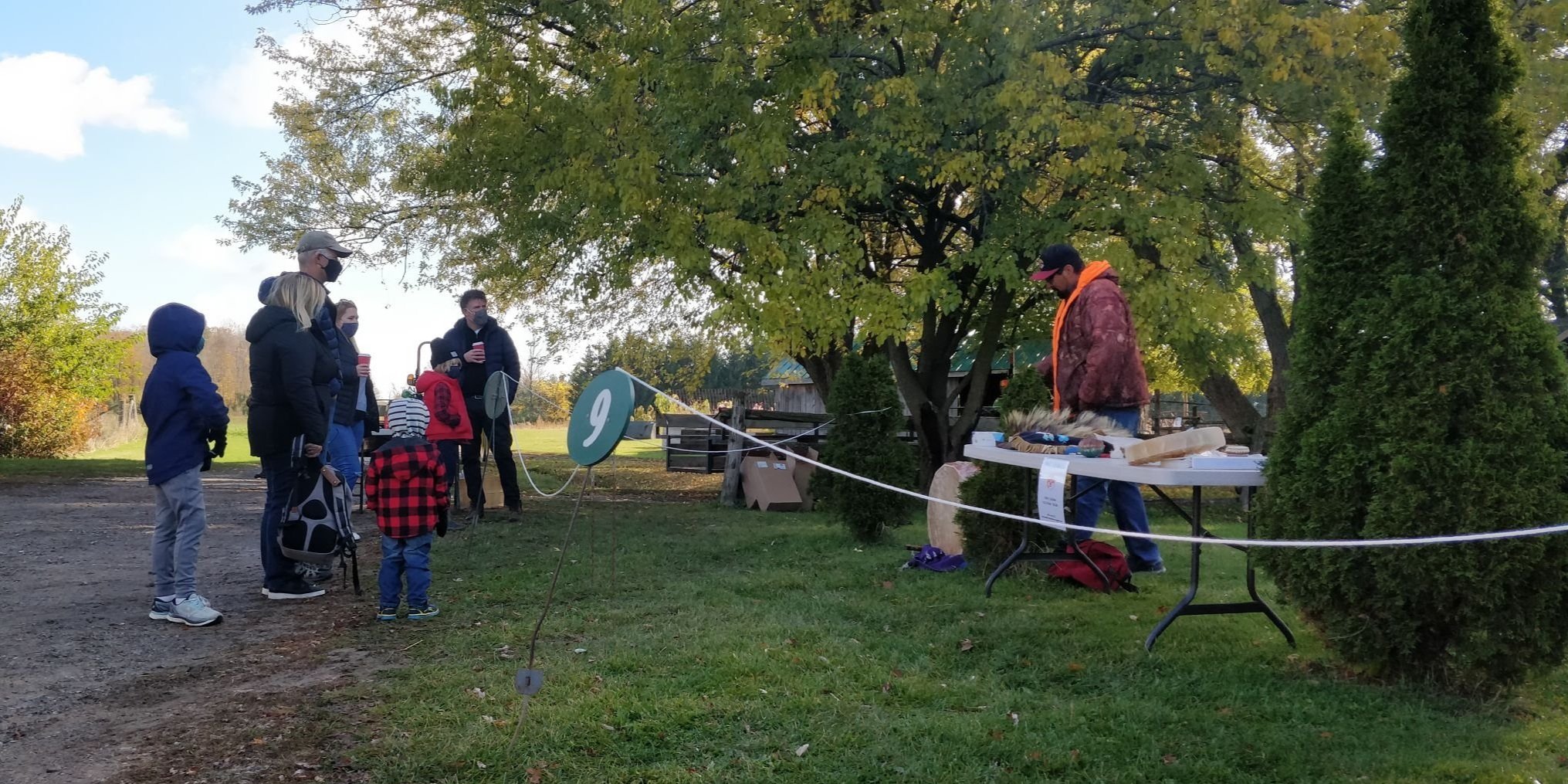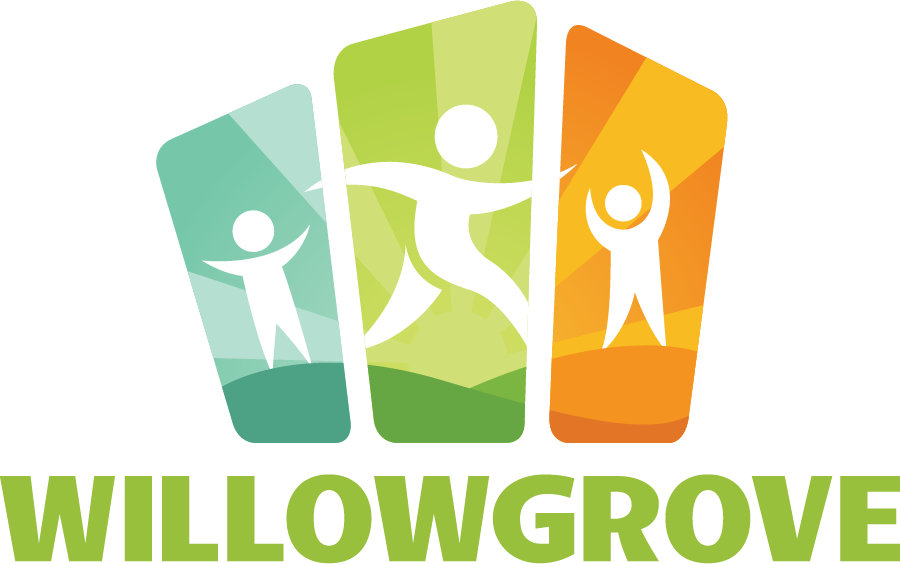
Commitment to Reconciliation

Reconciliation at Willowgrove
As a settler organization, Willowgrove is working to educate ourselves on matters of reconciliation, as well as the history and ongoing effects of colonialization.
We are grateful to local Indigenous teachers and knowledge keepers for sharing their skills, traditions, and wisdom with us as we continue to work towards reconciliation.
Reciprocal Giving
Looking to host ceremonies, community events, or teach traditional practices? Willowgrove is now offering free land access to local Indigenous communities.


History of these Lands
Land Acknowledgment
The lands that house Willowgrove and Fraser Lake Camp have been home to many First Peoples. To our knowledge, this has included the Haudenosaunee, Anishinaabe, and Huron-Wendat Peoples at Willowgrove, and the Algonquin Peoples at Fraser Lake Camp, all located within The Williams Treaty (For more information on this Treaty agreement, see below).
Traditionally, these Nations have cared for these places: honouring the plants, animals, water, and air. Today, many Indigenous Peoples from these Nations, as well as many others, still live, care for, and work in our communities today.
We at Willowgrove are thankful to be able to play, live, and learn on these lands.
The Williams Treaty
In October and November of 1923, The Williams Treaties were signed by the governments of Canada, Ontario, and by seven First Nations: the Chippewa of Lake Simcoe (Which includes Beausoleil, Georgina Island, and Rama), and the Mississauga of the north shore of Lake Ontario (Which includes Alderville, Curve Lake, Hiawatha and Scugog Island).
These Treaties encompass the land of both Willowgrove and Fraser Lake Camp and provided Indigenous signatories with a one-time cash payment, and the promise that Indigenous Peoples would be free to hunt and fish on the territory moving forward. However, many feel that these treaties have only created continuing injustices for Indigenous Peoples — insufficient compensation, inadequate reserve lands, and the inability to freely exercise their harvesting rights.
The Chippewa, Mississauguas, and Algonquin are all Anishinaabeg, a collective group of First Nations peoples. Although the land where Fraser Lake Camp is located is contained within the Williams Treaty, unfortunately Algonquin Peoples were not consulted and were not included as signees during this process. Because of this many Algonquin Peoples recognize the lands around Fraser Lake and much of Ontario as unceded, or never surrendered as part of this Treaty. Currently, many Algonquin groups are actively engaged with the Federal Government, advocating and working towards a historic Algonquin Treaty agreement that would better recognize their Nation.
Willowgrove’s Settler Roots
In the 1800s, Mennonite settlers moved to the property now called Willowgrove. The Grove family built their homestead here, working and caring for the land as they farmed and lived on this property. This land remained in the Grove family for four generations, until Levi Grove sold the property in 1968. The land was purchased by three Mennonite pastors from the Markham and Stouffville: Emmerson McDowell, Nicholas Dick, and Glen Brubacher. These three individuals founded Willowgrove and the mission we carry on today.
Fraser Lake Camp first began operation in 1955 in Fort Stewart when a committee of Toronto-based Mennonite pastors began renting Elvon Burkholder’s farm. After hosting the camp for many years, the Burkholder’s agreed to sell the property to Fraser Lake Camp in 1961, where the camp program has continued to operate since that time.
As a Christian organization, founded by the Mennonite community, we must also acknowledge the tragic failures and harms committed in the name of our faith. Indian Residential Schools were instituted as part of the Church’s mission, and remain a historic reality from which we cannot dissociate ourselves.
This is part of our legacy, and we still have lots to learn. Today, Willowgrove’s Mennonite values and faith are part of what continues to drive us towards this work, pursuing accountability and an ongoing commitment towards reconciliation.
Reconciliation Commitment Policy
As we continue to wrestle with our role in reconciliation, Willowgrove remains committed to educating ourselves as an organization, as well as educating our community about the past and ongoing effects of colonialism. In order to better make available our resources and land to Indigenous Communities, Willowgrove passed the following policy on April 25, 2023.
As such, Willowgrove now offers free facility rentals for Indigenous ceremonies, traditional practices, and other community activities. We hope that this policy not only publicly honours the Two Row Wampum treaty agreement, but also models the reciprocal giving practiced by many Indigenous communities.

Ongoing Learning
Indigenous-Lead Programming
Willowgrove believes that true reconciliation work requires relationship building. Therefore, both Willowgrove and Fraser Lake Camp have established, and continue to seek new partnerships with local Indigenous teachers, artists, and knowledge keepers.
Having offered its charitable education and recreational programs since 1968, Willowgrove has a unique platform to reach the Greater Toronto Area, and beyond. Therefore, we are working diligently to find ways to incorporate Indigenous-lead learning into our Outdoor Education, Nature School, and Camp programs, as well as offering the KAIROS Blanket Exercise (More information below).
Willowgrove
Fraser Lake Camp
Lauren Winkler - Indigenous Ed. Advisor
Lauren is Kanien’keha:ka (Mohawk) with her roots in Tyendinaga Mohawk Territory. Lauren grew up in Markham and attended Willowgrove Day Camp as a camper from the age of 6 until she was 15 and then returned as a councillor for two more summers.
Having spent 12 summers on the property, including some part time work for the outdoor education program and March Break camps, Lauren is back working with Willowgrove as a Reconciliation Consultant. She will be organizing and implementing programming that will teach Willowgrove visitors about elements of Indigenous cultures and how we can all work toward reconciliation.
Algonquin Inòdewiziwin Child and Family Centre & Shawashkong Ikwe Singers (SIS)
As part of the community work of Kijicho Manito Madaouskarini Algonquin First Nation, the Alognquin Inòdewiziwin Centre offers free drop-in programs for caregivers and children from birth to 6 years old through North Hastings Children’s Services.
They provide both indigenous and non-indigenous families with access to high quality indigenous services that support and enhance the well-being of children and guardians, and enrich knowledge about the Algonquin language, history and culture.
The Shawashkong Ikwe Singers perform songs and drumming as a way of sharing their Algonquin culture, traditional knowledge, and building positive relationships with the broader community.
Four Direction Mural
On August 24, 2022, Jon Colwell (Bio below), began painting four original murals inside Willowgrove’s Indoor Pavilion. This massive solo project was officially finished on Sept. 28, 2022, and makes up Jon’s largest mural to date. Jon took inspiration from the concept of the Ojibwe Medicine Wheel, or Four Directions teachings.
From tribe to tribe, the details of the Medicine Wheel sometimes differ, but many of the basic teachings remain the same. To the Anishnaabe, the Medicine Wheel is often referred to as the circle of life, symbolizing the natural cycles of birth, growth, death, and regeneration.
About the Artist: Jon Colwell is a Port Perry-based painter, muralist, digital designer, and clothing designer. His style is inspired by Street Art, Graffiti, Vinyl Toys, Punk Rock, Tattoos, Skateboarding, and “Anything else that catches my eye.” Jon is also a proud member of the Mississaugas of Scugog Island First Nation - a branch of the greater Ojibwa Nation, one of Canada’s largest indigenous groups. When Willowgrove asked Jon about the intersection of being an Indigenous artist, he laughed and said, “I’m Indigenous, and an artist, so I guess everything I make is Indigenous art!”

KAIROS Blanket Exercise (KBE)
The KBE is a unique, participatory teaching tool developed by KAIROS (a Settler, ecumenical social justice organization) in consultation with Indigenous leaders to share the historic and contemporary relationship between Indigenous and non-Indigenous peoples in Canada.
KBE Workshops
The aim of the KBE is to foster truth, understanding, respect and reconciliation among Indigenous and non-indigenous peoples.
The Blanket Exercise youth script is geared for students in grades 5 - 12. However, there is also an option for adult groups to participate in this experience using the full script.
The Youth Blanket Exercise is a 90-minute program that includes an opening and closing ceremony, a 45 minute interactive teaching component, and a talking circle to help participants debrief from the experience.

TRC Recommendations
In line with the Truth and Reconciliation Commission’s calls to action (July 1, 2009), Willowgrove aims to actively participate in the reconciliation work of Education and is working to build relationships with local first nation communities.
Willowgrove’s Values
Caring for these beautiful properties is an immense privilege that is not taken lightly. By re-examining our organization’s values through the lens of reconciliation, it’s our hope that these guiding principles can help us to better live out the caregiving traditions which have, and continue to be modelled to us both by Turtle Island’s first peoples, as well as the Settlers who farmed these lands afterwards.
Nurturing Growth
We facilitate physical, emotional, spiritual, and social development.
Welcoming Community
We embrace diverse relationships, accountability, acceptance, and belonging.
Building Peace
We champion justice, hope and healing.
Honouring Land
We participate in conservation, sustainability, reconciliation and conversation.
Cultivating Learning
We encourage inquiry, discovery and transformational education.
Willowgrove’s ongoing reconciliation work has been made possible through the generous support of the Ontario Trillium Foundation.
In 2018, Willowgrove received a Grow Grant in order to scale up its reconciliation programming. The funds allowed Willowgrove to further develop compelling cultural and arts-based learning experiences, expand on-site learning and training opportunities, and increase reconciliation-based learning and community impact through Willowgrove’s pre-established education connections.
Although Willowgrove’s commitment to reconciliation does not end with this project, the organization is tremendously grateful for the generous support from Ontario Trillium Foundation, and for all that was made possible through these funds.

Land Acknowledgement
Willowgrove acknowledges the original caretakers of the land it is settled on: the Anishinaabe, Haudenosaunee and Huron-Wendat Peoples. At Fraser Lake Camp, we acknowledge the Algonquin Peoples. In honour of the history and the treaties, we pledge to care for and use this land respectfully.






